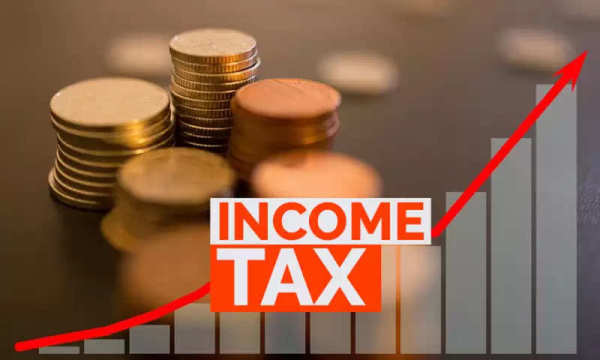
How to save income tax: The new year has started. It is time for new financial planning. But, before that, one should try to save tax for the current financial year. If you plan, you can save tax. Believe me, if the planning is right, then there will be no tax on your income i.e. salary. This means zero tax.
Take advantage of reimbursement.
According to the Income Tax rules, if tax deductions and tax exemptions are used properly, then tax can be saved. However, for this, you will also have to keep your salary structure such that the scope of tax is not high. Apart from this, you can take advantage of reimbursement.
What to do to make tax zero?
Now the matter is that in order to not have any tax on the salary, the balance between investment and savings will have to be maintained properly. If your salary is Rs 12 lakh and you take full advantage of reimbursement and investment tools, then there will be no tax on the salary. The entire salary will be received without tax.
Change the salary structure.
The option to change the salary structure is in your hands. You can also request this from the company HR. There is a limit for reimbursement. But, there can be multiple tools in it. Conveyance, LTA, entertainment, broadband bills, petrol bills, and entertainment or food coupons can also be used in reimbursement. Tax can be saved with the help of all these. Apart from this, there is also an option of HRA to save tax.
Take advantage of HRA like this.
3 figures are included in claiming HRA. The lowest of these three will get tax exemption. In the salary structure, the HRA given by the company is according to metro and non-metro cities. In metro cities, there is a provision to claim HRA up to 50% of the basic salary, and in non-metro cities, up to 40% of the basic salary. The amount that remains after deducting 10% of the basic salary from the total rent can be claimed as HRA.
How is HRA decided?
The rent in metro cities is Rs 20,000. That means 20% of your total monthly salary. The basic salary will be 50% of CTC. In this case, your basic is Rs 6 lakh. If you get an HRA of about 40% of the basic salary from the company, then you will get an HRA of about Rs 2.40 lakh annually. But, because you live in a metro city, you can take HRA up to 50% i.e. Rs 3 lakh. At the rate of Rs 20,000, the annual rent is Rs 2.40 lakh. After deducting 10% of the basic salary i.e. Rs 60,000 from this, the total HRA is Rs 1.80 lakh. Now, out of the three figures given above, Rs 1.80 lakh is the lowest. In this case, you can claim Rs 1.80 lakh annually.
LTA- Leave Travel Allowance
LTA can be availed twice in 4 years. It includes the fare of the travel plan. It is 10% of your basic salary. Rs 60,000 LTA will be available on a basic salary of Rs 6 lakh. If we look at the annual average, tax exemption can be availed for Rs 30,000.
How will you get the benefit of reimbursement?
1. Conveyance Allowance: People in the salary bracket of Rs 12 lakh usually get a reimbursement of Rs 1-1.50 lakh. This means that the conveyance allowance of Rs 1.50 lakh will be completely non-taxable.
2. Broadband bill: Tax exemption can be availed on broadband bill as well. Include it in the reimbursement. For this, you get an allowance of Rs 700-1000 every month. Let's assume that under this, you get Rs 1000 every month, which means Rs 12,000 will be your non-taxable salary annually.
3. Entertainment Allowance: You can claim it by showing the food bill in entertainment reimbursement. Those with a salary up to Rs 12 lakh will get Rs 2000 every month, i.e. up to Rs 24,000, as non-taxable.
4. Uniform, Books or Petrol Bills: Different companies give reimbursement in the name of uniform, petrol or books bills. You can also take up to Rs 1000-2000 in this category. By taking Rs 1000 every month as reimbursement, Rs 12,000 annually will come under the non-taxable category.
You will get an Income tax deduction.
There are some deductions available in the Income Tax Act, which help in reducing the taxable salary.
1- Basic income exemption: Salary up to Rs 2.5 lakh has been kept non-taxable in the Income Tax rules. This means that there will be no tax on any exemption up to Rs 2.5 lakh from your total salary. But, it is calculated at the end.
2. Standard deduction: First of all, you will get a standard deduction of Rs 50 thousand. This means that whatever your salary is, reduce it by Rs 50 thousand.
3- Section 80C: In this, you can get tax exemption on investments up to Rs 1.50 lakh. It includes tools like EPF, PPF, Sukanya Samriddhi Yojana, NPS, child's tuition fees, LIC, home loan principal. You can claim a deduction of Rs 1.50 lakh by using its full limit.
3- Section 80CCD(1B): Under this, one gets the benefit of investing additional Rs 50,000 in NPS.
Disclaimer: This content has been sourced and edited from ZEE Business Hindi. While we have made modifications for clarity and presentation, the original content belongs to its respective authors and website. We do not claim ownership of the content.